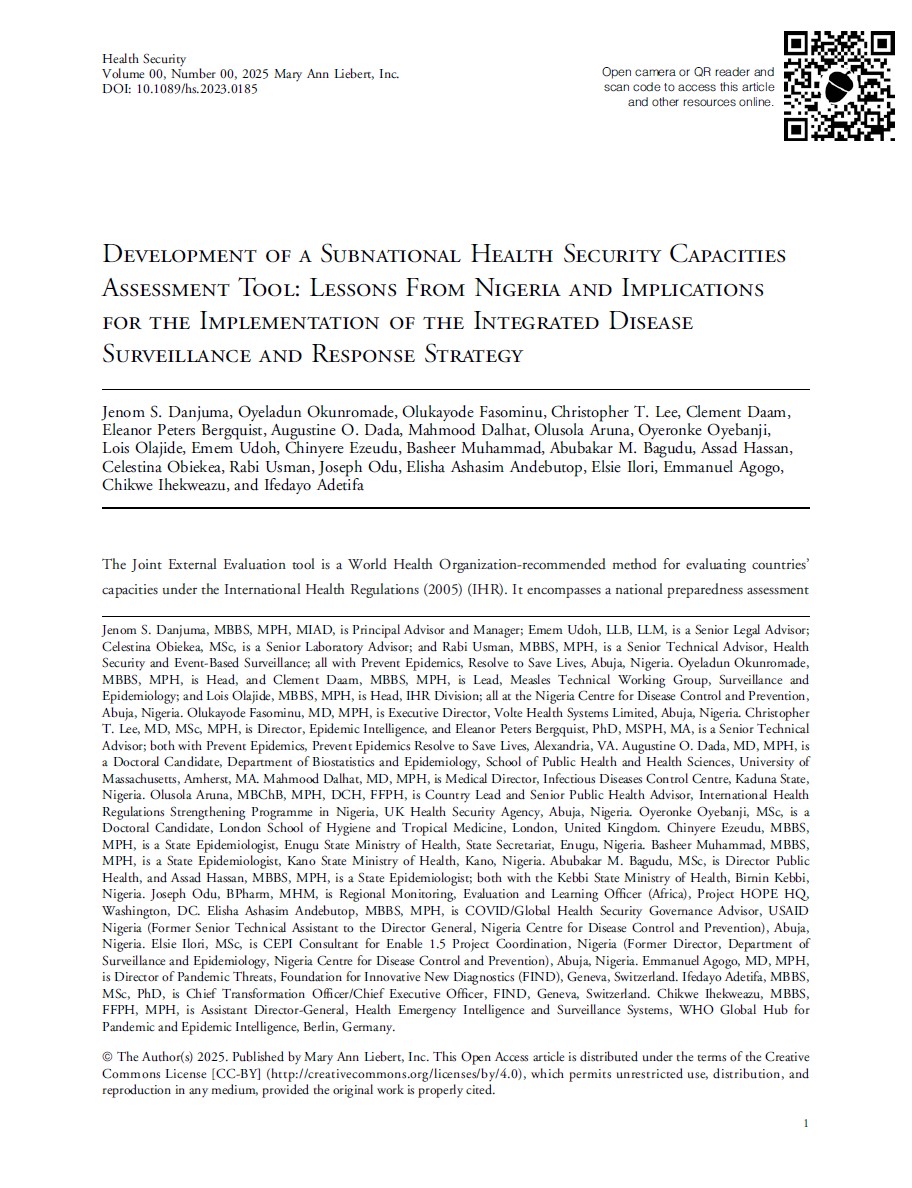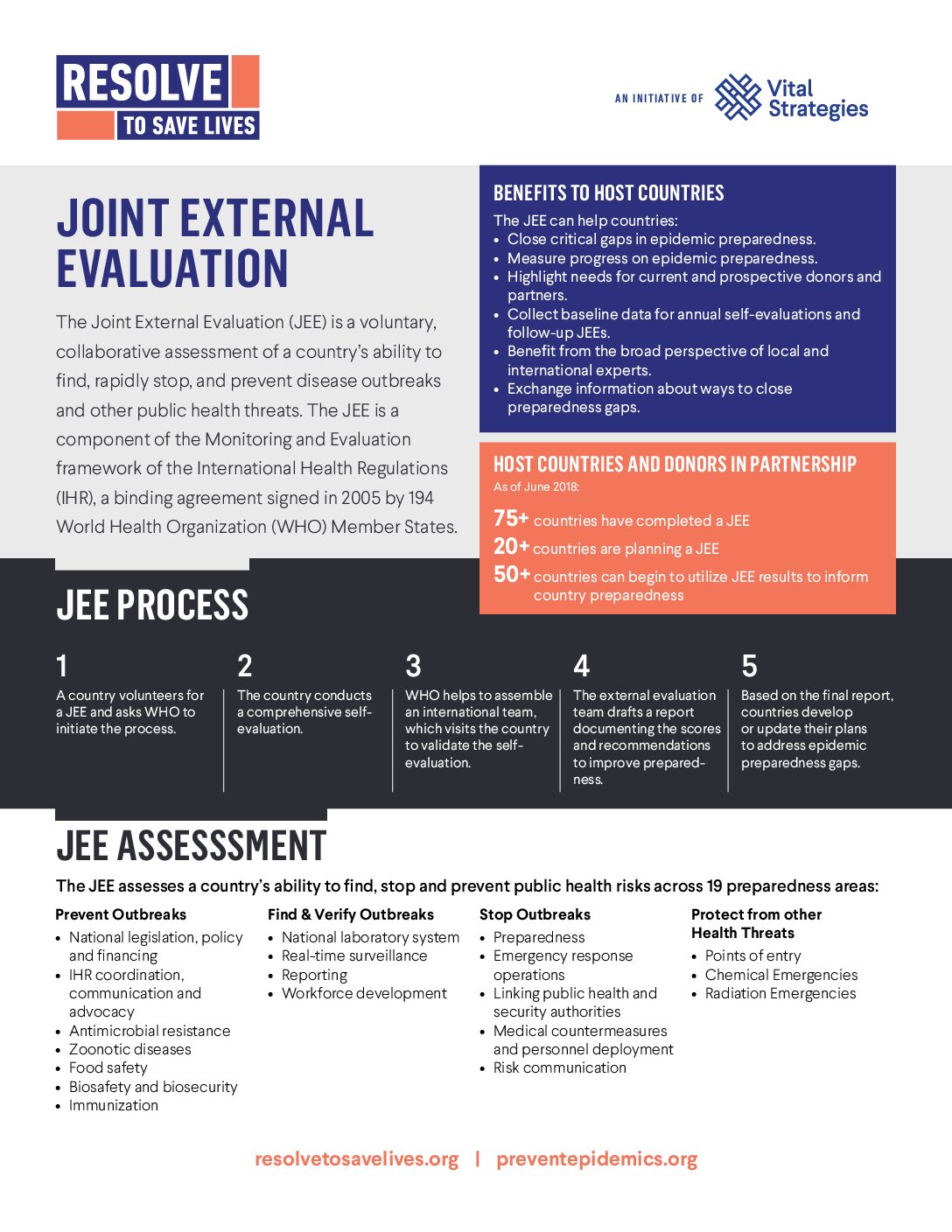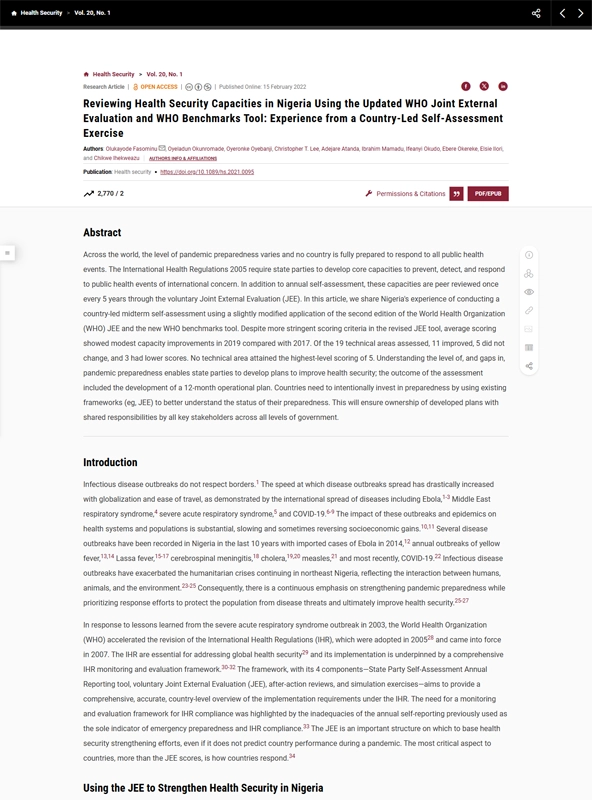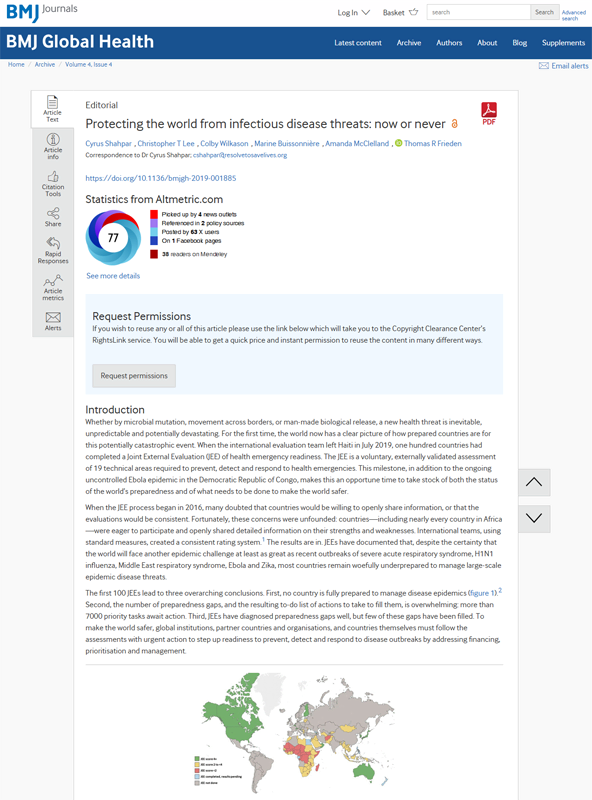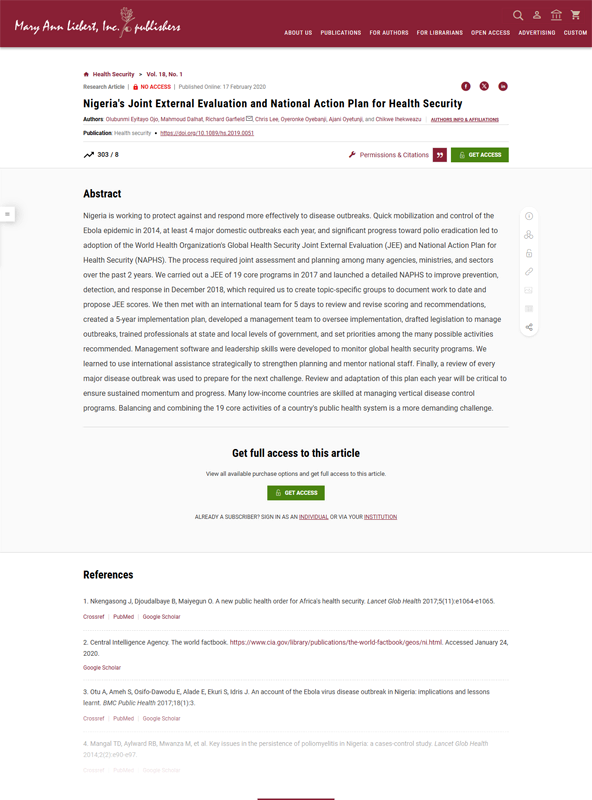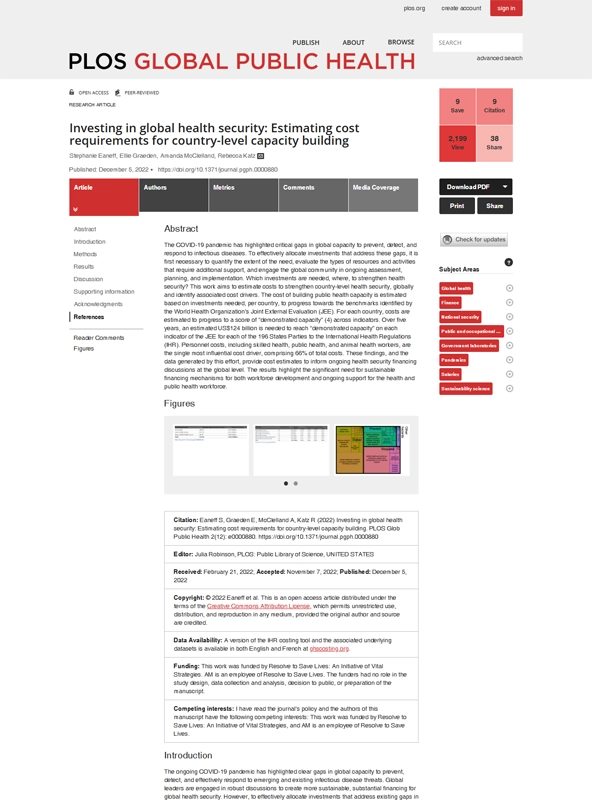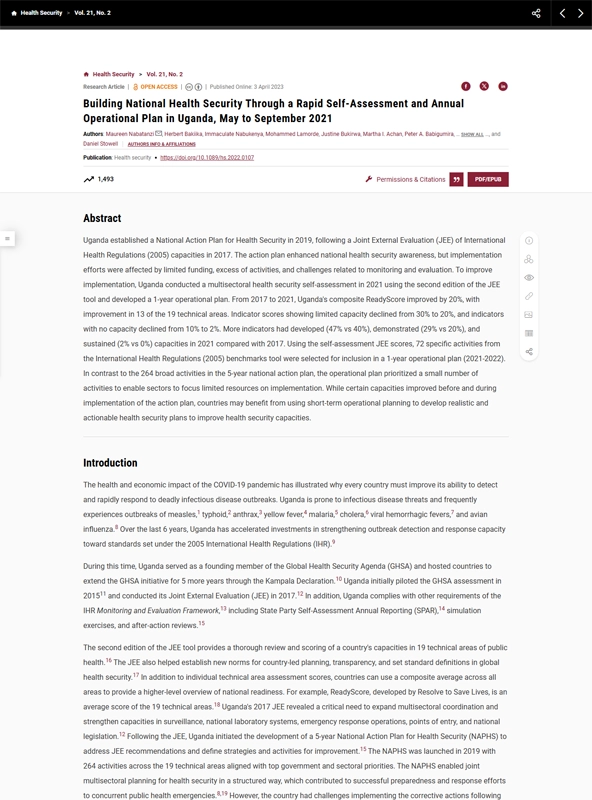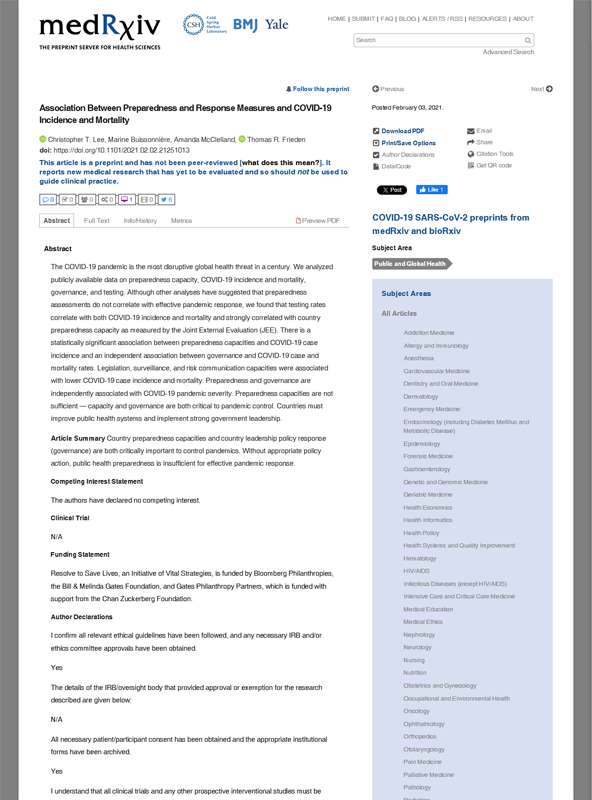Resource Library
Joint External Evaluations (JEE)
Health Security
How can health security capacities be measured at the subnational level? This tool includes 14 technical areas and 35 indicators to assess capacities in federated systems.
Resolve to Save Lives
Resolve to Save Lives
Health Security
Nigeria’s latest self-assessment of pandemic preparedness highlights the importance of investment and stakeholder involvement in strengthening health systems, according to the Nigeria CDC.
BMJ Global Health
We stress the need for global cooperation, leadership, and sustainable financing to address critical gaps in health preparedness revealed by the World Health Organization’s Joint External Evaluation.
Health Security
Nigeria’s adoption of the World Health Organization’s Joint External Evaluation (JEE) and National Action Plan for Health Security (NAPHS) will strengthen its national health security efforts.
PLOS Global Public Health
We make the case for a targeted $124 billion investment over 5 years to enable 196 countries to strengthen core capacities across the World Health Organization’s Joint External Evaluation indicators.
Health Security
Uganda improved its epidemic readiness by 20% by leveraging a rapid self-assessment and developing a focused, short-term operational plan that improved long-term strategy.
medRxiv
Looking at the data from COVID-19, we make the case that without good governance and strong leadership, public health preparedness won’t save us from the next pandemic.
